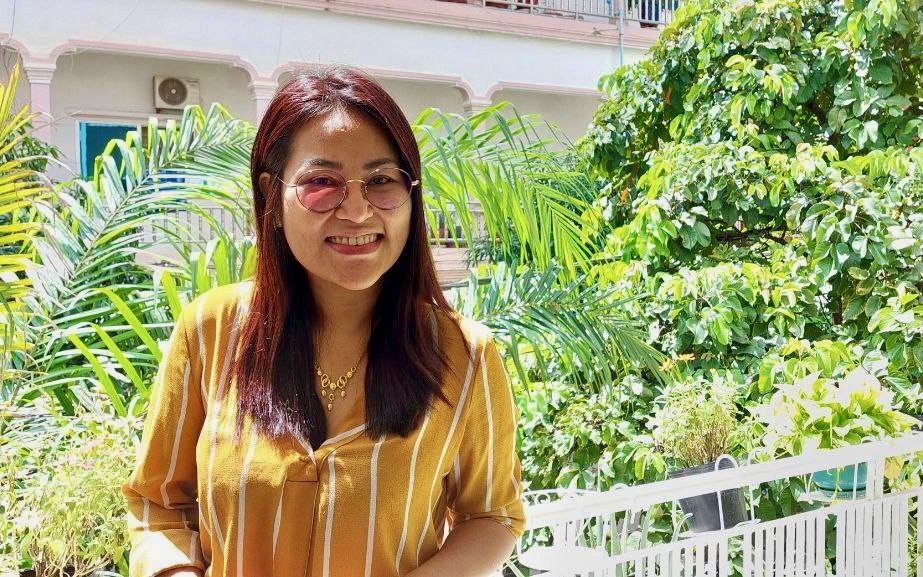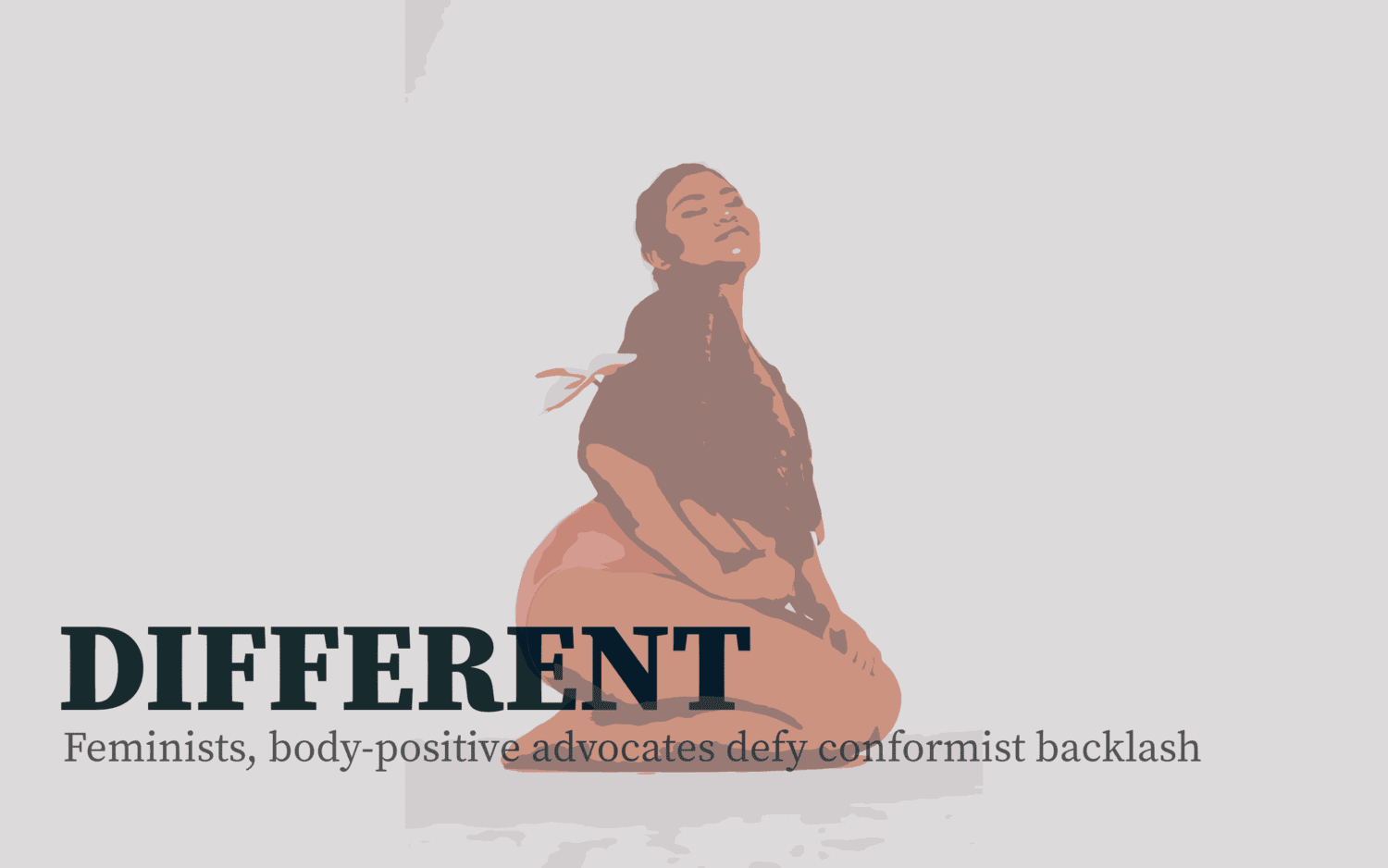When Choup Sreykeo, 26, took the stage of “Cambodian Idol” in May, she thought she was prepared for the insults that would likely come her way. But the flood was overwhelming.
“Too big,” a man wrote on Facebook. “Your voice is heavy like your weight,” said another.
“Oh pig, please practice first. And try to lose weight too,” a male commenter wrote.
Sreykeo was singing a popular tune, “My Poor Mother,” a ballad about a woman who moves away from home and misses taking care of her own mother.
The judges weren’t impressed by her voice, and in the end Sreykeo didn’t advance in the competition. But she still became one of the most talked-about contestants in the show, her appearance inciting an outpouring of judgment about her weight.
Sreykeo, who did not respond to inquiries from VOD, has pinned a message to the top of her Facebook profile:
“Sometimes I laugh with them. I don’t want them to think I mind. But in my heart I don’t like it. I’m broken. I’ve tried to tell myself that eventually they will get used to my body type. Before I went to the competition, I was ready for criticism. But I didn’t expect that some words would just appear and make me cry.”
Hundreds have also leapt to her defense, however. Especially for women’s rights advocates, bullying and body-shaming are familiar territory, and they are pushing back against senseless conformity and seeking new avenues for feminist conversations. The women going against the tide say they understand that people are afraid of change. But new voices are nevertheless trying to steer the talk toward accepting differences, and others are working to raise new perspectives despite the repeated backlash.
“Some people only look at the surface. What’s wrong with being fat? Do you feel uncomfortable seeing her? What did she do to you? This is useless,” wrote Ham Savanpidor in a post that was liked by hundreds.
Sovanpidor is among a new crop of social media personalities who have appeared over the past couple of years. On a page followed by around 27,000 people, Savanpidor talks about her own body, promoting self-confidence.
“Our body is not stable, so spend more time being a friend to your body. Accept it, give it more love. Don’t hate your body. Your body sacrifices a lot for you,” she says in one popular post.
Sovanpidor said she was familiar with the judgment that people show in public to someone with a different body type, and it was why she felt the need to speak out.
“They think it is a typical joke when they have never faced a similar thing,” she said.
Cheath Chansolinda started Neary in December 2019 with three others as a group for making videos and podcasts about gender stereotypes.
She said she had repeatedly seen the way that oppressive beauty standards were stifling women and girls — especially in high school — as well as other groups.
“We want to engage young women as a speaker, but they refuse to join because they [are worried they] don’t look good in front of a camera. I think sometimes girls lose opportunities due to beauty standards that society shapes them with,” Chansolida said.
“I asked a high school student: What is your dream? And she replied that her dream was to change her lips as people bully her about her lips. And she added that if she were to die tomorrow she would still want to change her lips as the last thing she did.”
In a small survey among her audience, 165 of 224 people said they were not happy with their bodies due to comments from other people, and 151 of them said they wanted to change their body types.
Chansolinda said she also faced constant criticism herself. If she speaks at public events, she can be judged just for wearing shorts. She frequently sees mean-spirited comments online.
“At first, I was a bit disappointed. But we are used to these words now,” she said. “But some words we cannot accept, like yelling that we are a group polluting society and destroying Cambodian culture.”
Bunn Rachana, co-founder of feminist NGO Klahaan, said that whenever a group advocates on women’s rights, another group will counter that it goes against Cambodian traditions, especially the Chbab Srey code for women. The code includes precepts on women obeying their husbands and listening to their families.

“There is one movement that walks in a positive way, but there’s also a movement that is counterproductive,” Rachana said. “But I think this is normal. Most people are scared of change. And feminism is a movement to change social norms for women.”
Since forming the NGO in 2018, Rachana said people often made assumptions about her, and were reluctant to talk to someone who spoke as a feminist. She found that any gender-related problem would get pushed into the corner of being a “women’s issue,” with little broader support even among civil society groups. She was also regularly harassed on online videos about appearances, she said.
“We’ve also had mental health [challenges] from verbal attacks on our social media. For example, I have a tattoo on my body. While I’m doing a show, people comment that I look like a prostitute. That happens almost every time.”
She said she believed that understanding about feminist issues was growing in Cambodia, but these judgments were still rampant, and were barriers stopping people from doing what they wanted to. “I want to see all women in their diversity utilize their potential and live their dreams in our society. After all, everyone is born equal and dies equal,” she said.
On social media, personalities promoting self-help and life advice are popular, and discourse about self-confidence increasingly spills over into issues of gender and diversity. Many pages host talk shows featuring a widening range of voices talking about feminism — celebrities and singers as guests, taking the issue beyond activists’ circles. A former focus on domestic household issues has expanded toward championing self-love.
Many of those pages were abuzz with Sreykor’s experience on “Cambodian Idol” in May.
For Sovanpidor, whose body-positive Facebook page has been one of the foremost champions around the issue, body-shaming and bullying restrict women’s freedoms. “People acted like she was not suitable to be on a stage. But she wanted to show her talent,” she said.
As the clamor around the singing contestant raged in May, a Facebook user wrote to one of Srekor’s critics: “Just live your life.”












